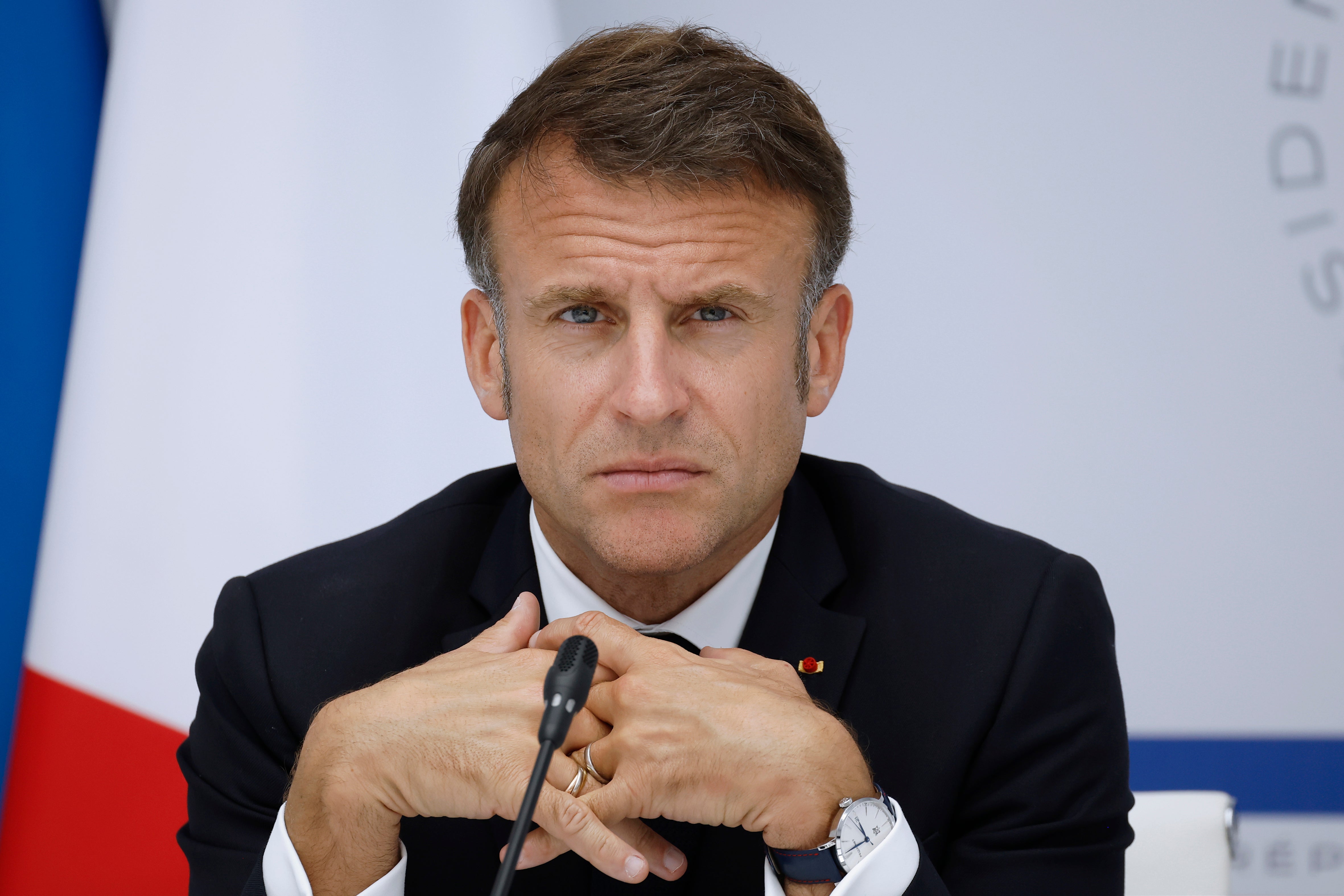Macron’s unnecessary gamble will tarnish his legacy and obliterate his credibility
Editorial: The French president’s extraordinary tenure has been fuelled by his willingness to take risks – a willingness that now looks set to be his political undoing

For a man who started his very own political movement from scratch, took the presidency within a year, and then won again in difficult circumstances, it is hard to believe that Emmanuel Macron could have taken such a senseless gamble with his legacy and, rather more to the point, with the future of his political project and his country.
Humiliated in the European parliament elections, when his Ensemble alliance finished a poor second to the neo-fascists, President Macron took everyone by surprise by calling a snap election for the National Assembly. It was at this point that, so used to winning, he overplayed a weak hand and lost. Few others thought it would pay off; they were right.
At this first stage in two rounds of parliamentary elections due to be completed on Sunday, it seems that he will lose the control he currently has over parliament, and thus the domestic agenda. In a few more days, he may also end up with the worst of all possible worlds – a nation without a functioning government, and far-right leader Marine Le Pen ready to finish the job and seize power at the next presidential election in 2027.
The mixture of surmise, speculation and wishful thinking that surrounded the president’s unfathomable move suggested two possible schools of thought that might have informed his decision. Some felt that Mr Macron wanted to kill off the right-wing extremists at these elections by sheer force of personality. Others believed that, in machiavellian fashion, he intended to allow them to win and then to rule France, at least in the domestic sphere provided for in the constitution, in order that they would make a mess of things and discredit themselves for ever.
In fact, Mr Macron will probably achieve neither of these outcomes.
Plainly, Ms Le Pen’s National Rally (RN) won, followed by a very broad left/green New Popular Front (NFP) in a respectable second place, Ensemble on about 20 per cent, and the mainstream right Republicans carrying a vital 10 per cent of the vote.
Given that pattern, it is quite possible that, in the second round this weekend, when the choices are whittled down, RN will emerge as the largest group in the National Assembly but with no overall majority. This would still be a shameful denouement for Mr Macron, but it would not mean an RN government. Mr Macron could ask RN’s nominee for the premiership, Jordan Bardella, to form a government, but RN has said it would refuse to in such circumstances.
Mr Macron could then turn to the NFP to do so, but it, too, might not wish or be able to pass a Budget or run the country for very long. Both RN and the NFP would be looking to the 2027 presidential election, when Mr Macron will be ineligible to run, for their chance to seize power. The radical centre that was such a force under Mr Macron’s charismatic leadership seems doomed to shrivel, leaving French politics bitterly polarised. For a change, the president’s enemies are outsmarting him.
France, therefore, will be left not with “cohabitation” between a president of one complexion and a prime minister of another – as has happened in the past, and sometimes functioned – but rather with a destabilising immobilisme of the wince-inducing kind that prevailed in the fourth republic (1946-58).
There is even talk of the country being run by some sort of apolitical “technocratic” caretaker administration, as happened in Italy a few years ago. Ministers appointed by Mr Macron would provide sufficient legislation to the National Assembly to keep the state running, but not much more. Even that wouldn’t work if the National Assembly chose to reject such a government. Fresh elections can’t be held for another year (and might result in a majority RN parliament).
Mr Macron’s tactics have been poor, and his timing appalling – it was beyond fanciful to ask voters to switch from RN to Ensemble only weeks after they had signalled their rejection of him and committed to Ms Le Pen in their European vote. His real failure, however, has been more basic: he has lost the arguments.
To his credit, President Macron has implemented important and essential economic reforms, and, after a brief early flirtation with Vladimir Putin, been a staunch ally of Ukraine. The political motor of the European Union has always been in Paris as much as in Brussels, and, after Angela Merkel stepped down, President Macron, still not quite 50, emerged as the continent’s pre-eminent statesman.
Yet for all that, he has failed to persuade his own people. They have rejected his policies and his project, and turned to the extremes. In forfeiting the national debate, he has placed the future of France, and that of Europe, in jeopardy. He needn’t have done so.






Join our commenting forum
Join thought-provoking conversations, follow other Independent readers and see their replies
Comments